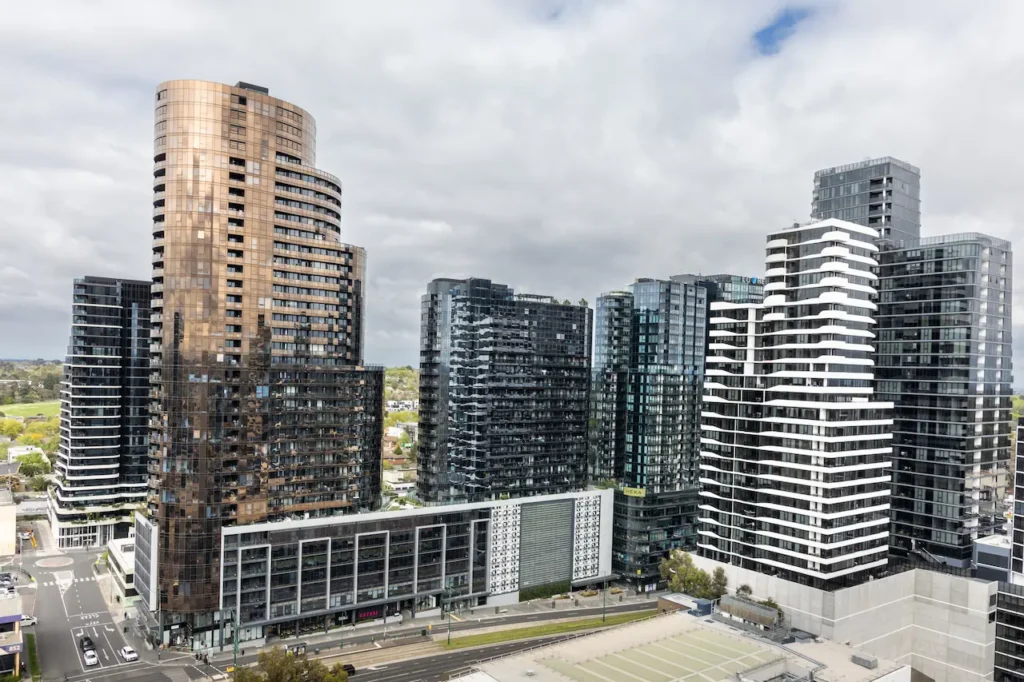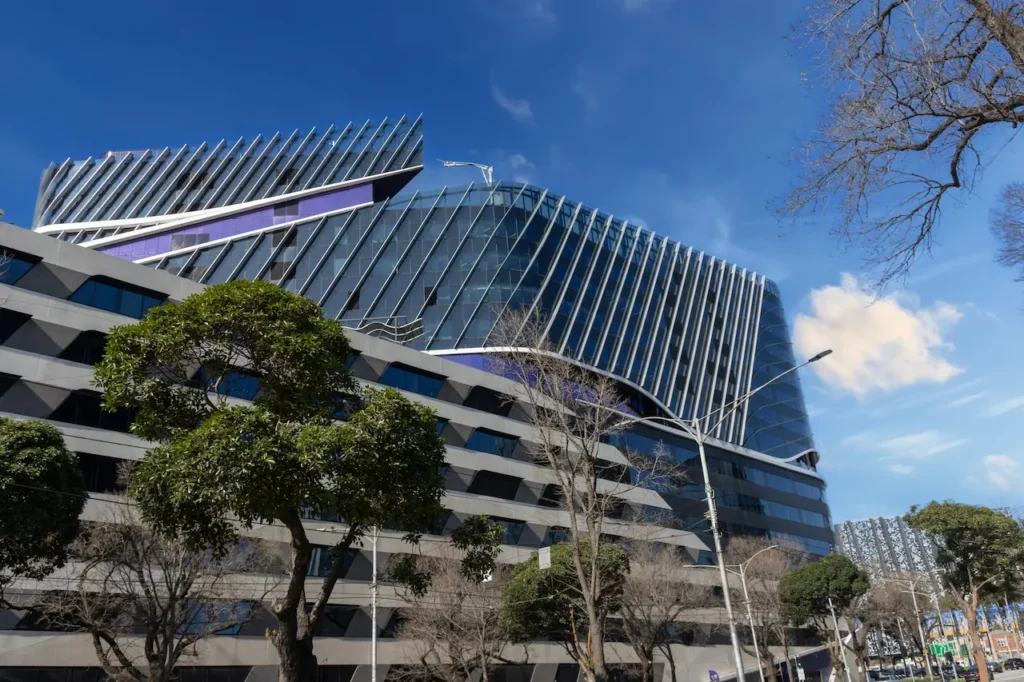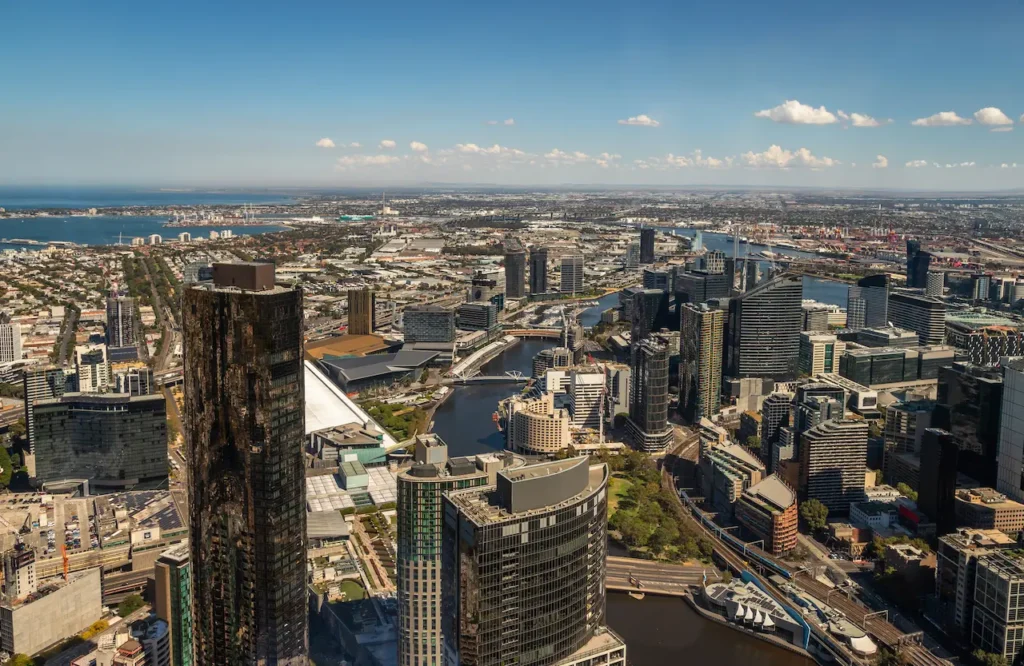No One is Selling in Melbourne Suburbs: A Deep Dive into the City’s Most Tightly Held Property Markets
The Melbourne property market is renowned for its dynamic nature, where trends can shift quickly, and demand can fluctuate due to various economic and social factors. However, despite the fluctuations and occasional downturns, certain suburbs in Melbourne have consistently stood out for their remarkable stability. One key indicator of this stability is the length of time homeowners hold onto their properties—an insight that provides a valuable perspective on market resilience and long-term desirability. These tightly held suburbs are characterized by long holding periods—properties that are owned for decades rather than years. In fact, some of Melbourne’s suburbs have average holding periods that stretch far beyond the city-wide average of 12.1 years, revealing much about the area’s lifestyle appeal and its attractiveness to investors.
At RiskWise Property, we specialize in analyzing trends in the Australian property market, and this trend of long-held properties has caught our attention. Our research, powered by CoreLogic data, has enabled us to identify the top five most tightly held suburbs in Melbourne, where residents are staying put for 20 years or more. These suburbs offer unique insights into what drives property value retention, community loyalty, and long-term market stability.
In this article, we’ll examine these suburbs in greater detail, diving into the specific factors that contribute to such long holding periods and explaining what this means for both homeowners and investors. By understanding these tightly held markets, investors can gain a clearer picture of where long-term growth is likely to occur, and homeowners can better understand the broader forces that make these areas so desirable. Let’s take a closer look at the five most tightly held suburbs in Melbourne, explore why these areas are in such demand, and consider the broader implications for the housing market.

The Significance of Holding Periods in Real Estate
Before we explore the top five suburbs in detail, it’s important to understand why holding periods matter in real estate. A holding period refers to the length of time a homeowner retains ownership of a property before selling it. The average holding period for Melbourne homes is 12.1 years, according to the latest data from CoreLogic. However, in specific suburbs, this period can be significantly longer, signaling the exceptional appeal of these areas to their residents.
Why Do People Stay?
The longer a homeowner stays in a property, the more likely it is that the suburb is offering some combination of desirable features, including:
- Community Stability: Homeowners in tightly held suburbs are often deeply invested in their communities. Whether it’s the neighborhood’s culture, a sense of belonging, or long-term friendships, these areas foster connections that encourage people to stay.
- Location and Accessibility: Suburbs that are well-located with convenient access to public transport, major roads, and employment hubs tend to have longer holding periods. Proximity to the Melbourne CBD, good schools, shopping districts, parks, and leisure activities make these suburbs more desirable to long-term residents.
- Capital Growth and Equity: Suburbs that experience sustained capital growth and offer high equity levels often become financially attractive. Homeowners are less likely to sell when their properties are appreciating steadily, as the long-term financial benefits of staying outweigh the potential rewards of selling.
- Lifestyle Appeal: Some suburbs offer unique lifestyle benefits, such as proximity to nature reserves, golf courses, high-quality schools, and recreational facilities. These lifestyle factors can make these areas more desirable for families or individuals looking for stability and long-term comfort.
By closely analyzing CoreLogic’s data, we’ve identified the suburbs in Melbourne that stand out due to their exceptionally long holding periods—places where people simply don’t want to leave because of these combined factors.
The Top 5 Most Tightly Held Suburbs in Melbourne
Using CoreLogic data and our in-depth analysis, RiskWise Property has pinpointed five Melbourne suburbs where the average holding period for homes far exceeds the city-wide average of 12.1 years. These suburbs—Huntingdale, Belgrave Heights, Wantirna, Clayton South, and Springvale South—are places where residents are not only deeply invested financially, but also emotionally, due to the unique characteristics that each suburb offers. Let’s explore each of these areas in detail to understand why people are choosing to stay for so long.
1. Huntingdale: 23.9 Years of Ownership
Huntingdale, a suburb located just 17 kilometers southeast of Melbourne’s CBD, tops the list with an average holding period of 23.9 years. This suburb’s long ownership periods are not surprising when we consider its strong local community, convenient transport options, and proximity to key educational institutions.
Key Statistics for Huntingdale:
- Median House Price: $1,021,990
- Three-Year Capital Growth: 39.3%
- Median Equity: $625,950
- Equity Percentage: 195.7%
The key to Huntingdale’s desirability lies in its proximity to Monash University—one of Melbourne’s largest and most respected institutions. Many students, academics, and professionals are drawn to the suburb due to its direct access to the Pakenham and Cranbourne railway lines, which link the area directly to Monash University and the CBD.
Huntingdale is also home to several key schools, such as the John Monash Science School, making it a popular area for families. Moreover, the Huntingdale Golf Club and nearby parks provide recreational options, and the area is well-served by shopping precincts and cafes. The combination of 39.3% capital growth over the last three years and a median equity of $625,950 speaks to the suburb’s robust performance in the property market.
Key Features:
- Educational Hub: Close proximity to Monash University and high-quality schools.
- Good Transport Access: Fast train connections to the CBD.
- Capital Growth: Strong, consistent capital growth, with a 39.3% increase in the last three years.
2. Belgrave Heights: 20.3 Years of Ownership
Approximately 38 kilometers southeast of Melbourne’s CBD, Belgrave Heights offers a tranquil, semi-rural environment with plenty of green space and easy access to the city. Its 20.3-year average holding period reflects the area’s exceptional lifestyle appeal, offering residents a peaceful escape from urban life while still providing access to essential services and transport links.
Key Statistics for Belgrave Heights:
- Median House Price: $713,274
- Three-Year Capital Growth: 45.6%
- Median Equity: $459,831
- Equity Percentage: 181.5%
The suburb is known for its Birdsland Bushland Reserve, a 75-hectare park that is home to a wide range of native wildlife. Residents enjoy the natural beauty of the area, as well as easy access to hiking trails and outdoor activities. Although the suburb is somewhat removed from the city center, the nearby Belgrave train station offers a direct connection to Melbourne, making it an attractive option for people looking for a balance between tranquility and city access.
Belgrave Heights has seen an impressive 45.6% capital growth over the past three years, suggesting that the area is increasingly in demand. The 181.5% equity percentage indicates that long-term residents are seeing substantial returns on their properties, reinforcing the appeal of staying put for the long haul.
Key Features:
- Natural Environment: The presence of Birdsland Reserve and a wealth of native wildlife.
- Proximity to the City: Direct rail access to the CBD via Belgrave station.
- Solid Growth: A strong record of capital growth despite its distance from the city center.

3. Wantirna: 19.3 Years of Ownership
Located just 24 kilometers from Melbourne’s CBD, Wantirna is a suburb that combines family-friendly amenities with excellent access to transport links. It boasts an average holding period of 19.3 years, reflecting its appeal to families seeking a stable environment with good schools, parks, and convenient shopping.
Key Statistics for Wantirna:
- Median House Price: $911,182
- Three-Year Capital Growth: 40.0%
- Median Equity: $624,374
- Equity Percentage: 223.2%
Wantirna’s EastLink tollway provides fast access to surrounding areas, while its proximity to major shopping centers such as Westfield Knox makes it a practical choice for residents. The suburb is home to several high-quality schools and recreational facilities, including parks and sports complexes, making it a popular choice for families with young children.
Over the past three years, Wantirna has experienced 40.0% capital growth, a testament to its rising popularity. The suburb’s high equity percentage of 223.2% signals that many homeowners have built significant wealth in their properties, further incentivizing them to hold on for the long term.
Key Features:
- Family-Focused Amenities: Good schools, parks, and recreational spaces.
- Excellent Transport Links: Easy access to major roads and public transport.
- Strong Capital Growth: Healthy growth over the past three years.
4. Clayton South: 19.1 Years of Ownership
Clayton South is another standout suburb, located just 19 kilometers from Melbourne’s CBD.
The suburb offers a mix of residential housing, schools, and convenient transport connections, making it particularly attractive to families and professionals alike.
Key Statistics for Clayton South:
- Median House Price: $863,170
- Three-Year Capital Growth: 52.0%
- Median Equity: $612,914
- Equity Percentage: 473.6%
With an impressive 52.0% capital growth over the last three years, Clayton South is one of the highest performers in terms of value appreciation. The suburb enjoys excellent train connections, direct access to major roads, and a strong sense of community. Moreover, with an average equity increase of 473.6%, it’s clear that long-term homeowners in Clayton South have experienced substantial financial gains, reinforcing the desire to hold onto their properties.
Key Features:
- Good Mix of Schools: A range of education options, including primary, secondary, and tertiary institutions.
- Public Transport Accessibility: Easy access to both the train network and major roads.
- Strong Capital Growth: Over 50% capital growth in just three years.
5. Springvale South: 18.6 Years of Ownership
Rounding out the top five is Springvale South, located 24 kilometers south of Melbourne’s CBD. Known for its affordable housing, diverse community, and great public transport connections, Springvale South has experienced remarkable capital growth over recent years.
Key Statistics for Springvale South:
- Median House Price: $747,357
- Three-Year Capital Growth: 49.9%
- Median Equity: $560,947
- Equity Percentage: 255.8%
With 49.9% capital growth over the last three years, Springvale South has become increasingly attractive to both homeowners and investors. The area’s strong community and public transport links, including a direct rail line to the CBD, contribute to its popularity. With 255.8% equity, long-term residents are reaping substantial financial rewards, which only further cements their decision to stay.
Key Features:
- Affordable Housing: Great for first-time buyers and families.
- Diverse Community: A mix of cultures and demographics.
- Solid Infrastructure: Convenient transport links and local amenities.

Conclusion: Understanding the Tightly Held Suburbs of Melbourne
At RiskWise Property, our deep dive into Melbourne’s most tightly held suburbs reveals a clear picture of what drives long-term property ownership. These areas—Huntingdale, Belgrave Heights, Wantirna, Clayton South, and Springvale South—are all characterized by a combination of excellent community appeal, strong capital growth, and financial rewards for long-term homeowners.
For investors, these suburbs present a valuable opportunity for stable, long-term returns, especially in markets where holding periods are above average and equity growth is substantial. For homebuyers, understanding the dynamics of these areas can help make informed decisions about where to settle for both lifestyle and financial benefits.
Ultimately, these suburbs exemplify the principles of sound investment—well-established areas with good schools, strong community ties, and robust capital growth. By understanding why these suburbs are so tightly held, investors and homeowners alike can gain valuable insights into where Melbourne’s property market is headed in the long run.
At RiskWise Property, we continue to monitor these trends and offer data-driven insights to help both homeowners and investors navigate Melbourne’s evolving property landscape with confidence.

